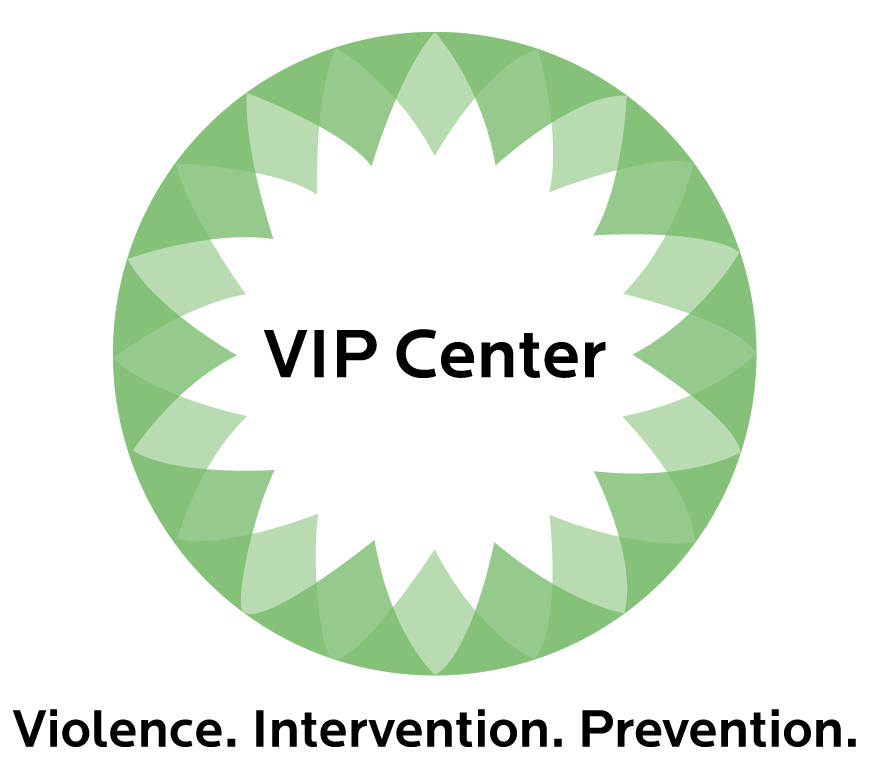
Speak with us 100% confidentially through email or call 402.280.3794.
Call 402.280.3189 or report online using the Tell Someone form.
The VIP Center will support you throughout the reporting process.

If you are supporting a friend who has experienced interpersonal violence, the VIP Center is here to support you. Contact us anytime to set up a meeting with an advocate.
It's never the fault of the survivor. Your friend was not assaulted because of something they did or did not do, or what they were wearing. It has nothing to do with going to a party or social event. It has nothing to do with not fighting or not saying ?no? loud enough.
It can happen to anyone. Sexual assault can occur in dating situations, in friendships, and between acquaintance who?ve just met. It happens to people of all sexual orientations, gender identities, cultural identities, ages, and social classes.
It happens because of another person's actions. Sexual assault occurs because there was a person in the room willing to commit sexual or interpersonal violence; a person willing to coerce, manipulate, pressure, or overpower your friend in order to hurt them; a person who did not receive ongoing, freely given consent.
It takes courage for a survivor of sexual assault or domestic violence to share their story with anyone. Never underestimate you power to affect the course of a survivor?s healing journey.
If someone shares their experience with you, you are probably someone they can look to for support, compassion, and guidance. Although you can?t take away what happened to someone, you can be a source of comfort.
Sometimes you don’t even need words (or at least not a lot of words), to be there for someone. Many people share that being able to tell their story to someone else lessens the weight of isolation, secrecy, and self-blame. Listening is in and of itself an act of love.
Think about a time when you felt vulnerable or faced a crisis and think of what helped you the most. Chances are it was not a specific conversation you had, but it was the knowledge and comfort that the person or people you told were there for you, believed in you, were on your side, and were committed to supporting you through a hard time. There are some helpful phrases you can use to show you care.
Often, a survivor may feel like what happened to them is their fault. We are bombarded with victim-blaming myths and attitudes in our society, and they can sink in… deeply. But no action excuses a person hurting someone else. Violence and abuse is never the victim’s fault. That responsibility and shame lies with the perpetrator. It can be helpful to communicate that gently and repeatedly.
Things to avoid when communicating with a survivor:
Violence and abuse is about power and control. It is vital for survivors to regain their sense of personal power. Instead of pushing someone into taking actions for which they are not ready, ask how you can support them.
You can best help a survivor by offering options and leaving space for them to decide where to go from there. Here are some resources—services that you can point someone to.
Remind a survivor you are available if they'd like to talk about their experiences further. The healing journey can be a long one. It can be full of many challenging—but sometimes joyful and liberating—conversations. It can make a big difference for a survivor to know you are there to support them along the way.
There is a limit to what we can take in and process. The stories of someone else’s hardships related to a traumatic event can impact or become a part of us. This experience of second-hand trauma—often called vicarious trauma—is a human response to coming face-to-face with the reality of trauma and the difficulties of the human experience.
It’s important to care for yourself as you support another person. You cannot be your best self in your supportive role if you find yourself too tired to listen with care and compassion or you are overfilled with your own emotions in response to another’s trauma. These feelings are valid. Take some time after a conversation to enjoy the outdoors or do a healthy activity that makes you feel good as a way of re-centering yourself.
Remember, you can be your best self for someone else when you give yourself the space to honor your own needs.”